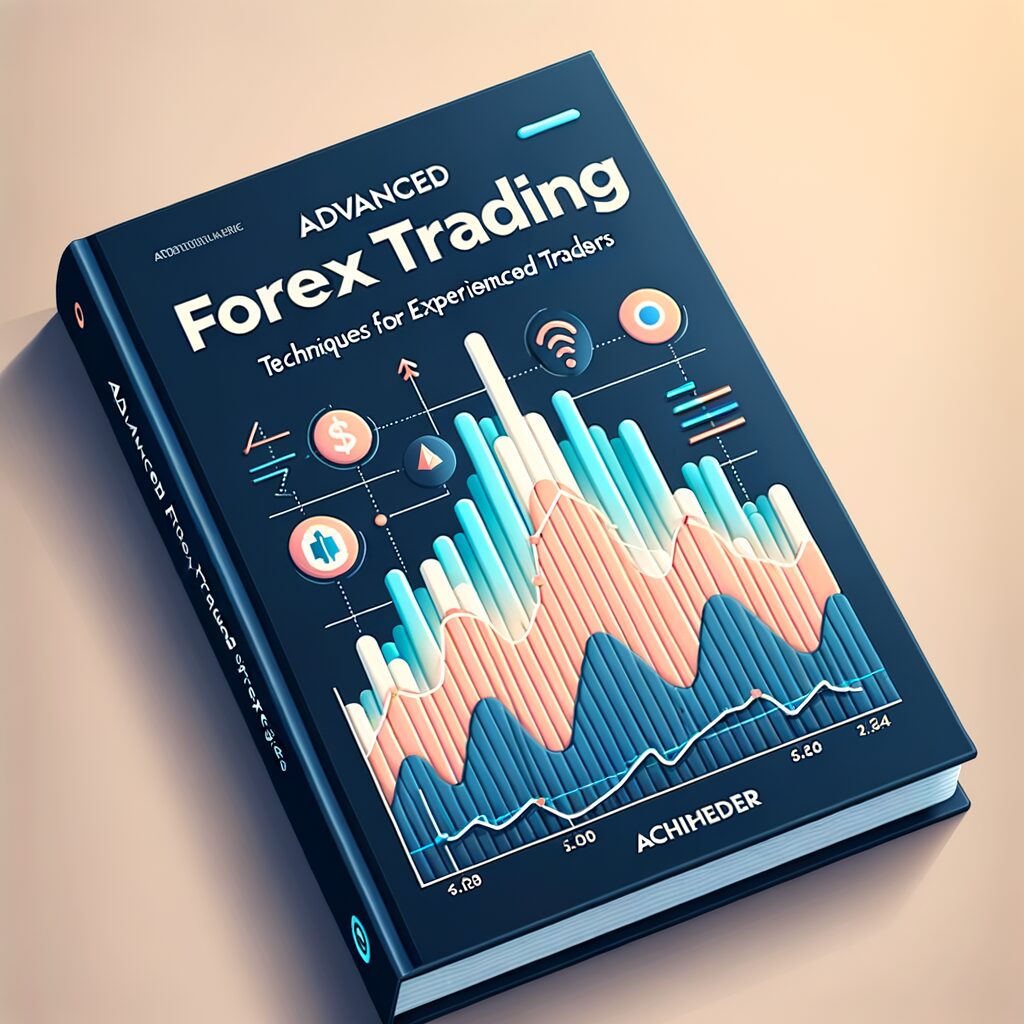
“Master the Market: Elevate Your Trading with Advanced Forex Strategies”
Advanced Forex Trading Strategies: Mastering Risk Management for Profitable Trades
Advanced Forex Trading Strategies: Mastering Risk Management for Profitable Trades
In the realm of foreign exchange, or Forex, trading, the difference between success and failure often hinges on the strategies employed by the trader. While beginners may focus on understanding the basics and gaining experience with simple trades, experienced traders continually refine their approach, employing advanced strategies to enhance their performance. Among these, mastering risk management is paramount for sustaining profitability over the long term.
Risk management in Forex trading involves a comprehensive set of techniques designed to minimize potential losses. One such technique is the use of stop-loss orders, which serve as a safety net by automatically closing a position once the market moves against it by a certain amount. This tool allows traders to set their maximum loss threshold in advance, protecting their capital from unexpected market swings. However, setting stop-loss orders is an art in itself; placing them too close to the entry point can result in premature exits, while setting them too far may lead to substantial losses.
Another cornerstone of advanced risk management is position sizing. Experienced traders understand that the size of each trade should be proportionate to the overall account balance. By risking only a small percentage of their capital on a single trade, they ensure that no single loss can significantly impact their account. This disciplined approach requires traders to calculate the optimal trade size based on their risk tolerance and the volatility of the currency pair they are trading.
Diversification is also a key strategy for mitigating risk. Rather than concentrating all their capital in a single currency pair or trade, seasoned traders spread their investments across various instruments and markets. This reduces the impact of any one trade on the overall portfolio, as losses in one position can be offset by gains in another. Diversification in Forex trading can be achieved not only by trading different currency pairs but also by employing different trading strategies or timeframes.
Moreover, advanced traders often utilize hedging techniques to protect their positions. Hedging involves opening a trade that will become profitable if your primary trade starts to lose money, effectively reducing potential losses. For example, if a trader has a long position in a currency pair, they might take a short position in a correlated pair to hedge against downside risk. While hedging can limit profits, it is a valuable strategy for managing risk in volatile markets.
Leverage is another double-edged sword in Forex trading. While it can amplify gains, it can also magnify losses. Experienced traders are acutely aware of the risks associated with high leverage and use it judiciously. They understand that leverage should be adjusted according to the volatility of the market and their own risk tolerance. By using leverage responsibly, they maintain control over their trades and avoid the pitfalls of overexposure.
Finally, successful Forex traders recognize the importance of a solid trading plan. This plan includes not only entry and exit strategies but also rules for risk management. By adhering to a well-thought-out plan, traders can avoid emotional decision-making and maintain discipline even in the face of market turmoil.
In conclusion, advanced Forex trading strategies go beyond mere analysis of charts and patterns. They encompass a deep understanding of risk management techniques that safeguard a trader's capital. By employing stop-loss orders, proper position sizing, diversification, hedging, prudent use of leverage, and a disciplined trading plan, experienced traders can navigate the Forex markets with confidence. These strategies are the bedrock upon which profitable and sustainable trading careers are built, allowing traders to weather the storms of market volatility and emerge with their gains intact.
The Role of Advanced Techniques in Crafting Superior Forex Trading Strategies for Experienced Traders

Advanced Forex Trading Strategies: Techniques for Experienced Traders
In the realm of foreign exchange, or Forex, trading, the difference between success and failure often hinges on the strategies employed by traders. As individuals gain experience in the Forex markets, they tend to move beyond basic techniques and look for more advanced strategies that can enhance their ability to predict market movements and manage risk effectively. These advanced techniques are not merely fancier versions of basic strategies; rather, they are sophisticated methods that require a deep understanding of market dynamics, trading psychology, and financial risk management.
One such advanced technique is the use of complex technical analysis. Experienced traders often employ a multitude of technical indicators to identify potential entry and exit points. These indicators can include moving averages, Bollinger Bands, Fibonacci retracements, and momentum oscillators like the Relative Strength Index (RSI). By combining these tools, traders can develop a nuanced view of market trends and volatility, allowing them to make more informed decisions. However, it is crucial to remember that no single indicator provides a silver bullet; successful traders use these tools in conjunction with a broader trading plan and never rely on them exclusively.
Another advanced strategy involves the application of quantitative models. These models can range from relatively simple algorithms that automate certain aspects of trading to complex systems that can analyze vast amounts of market data in real-time. Quantitative models can help traders identify patterns that may not be immediately apparent and can provide a structured approach to trading that removes emotional decision-making from the process. However, the development and implementation of these models require a high level of expertise in both trading and statistical analysis.
Risk management is another area where advanced techniques play a critical role. Experienced traders understand that managing risk is just as important as identifying profitable trading opportunities. Techniques such as position sizing, the use of stop-loss orders, and portfolio diversification are essential tools in a trader's arsenal. Additionally, more sophisticated methods like value at risk (VaR) or stress testing can help traders understand potential losses in adverse market conditions and adjust their strategies accordingly.
Furthermore, experienced traders often explore the intermarket relationships between different asset classes, such as currencies, commodities, stocks, and bonds. Understanding how these markets interact can provide valuable insights into currency movements. For example, the correlation between commodity prices and the currencies of commodity-exporting countries can be a significant factor in Forex trading. By analyzing these relationships, traders can anticipate how a movement in one market may influence another, thereby gaining an edge over less informed market participants.
Finally, the psychological aspect of trading cannot be overstated. Advanced traders recognize the importance of maintaining discipline and emotional control. They often use techniques such as journaling trades, setting predefined trading hours, and adhering to a strict trading plan to maintain focus and avoid impulsive decisions that can lead to substantial losses.
In conclusion, advanced Forex trading strategies encompass a wide range of techniques that allow experienced traders to navigate the complex and often volatile currency markets. From sophisticated technical analysis and quantitative models to rigorous risk management and an understanding of intermarket dynamics, these strategies are integral to crafting superior trading approaches. Moreover, the psychological fortitude to adhere to these strategies even in the face of market adversity is what often separates the proficient traders from the rest. As traders continue to refine their skills and knowledge, the continuous application of these advanced techniques is essential for achieving long-term success in the Forex markets.
Exploring High-Level Forex Trading Strategies: A Guide for Experienced Traders to Maximize Gains
Advanced Forex Trading Strategies: Techniques for Experienced Traders
The foreign exchange market, known as Forex, is the largest and most liquid financial market in the world, where currencies are traded in pairs. For experienced traders, the quest for better returns often leads to the exploration of advanced trading strategies that can help maximize gains while managing risk. These sophisticated techniques require a deep understanding of market dynamics, technical analysis, and the psychological aspects of trading.
One such strategy is the carry trade, which involves borrowing a currency with a low-interest rate and using it to purchase a currency with a higher interest rate. The trader profits from the interest rate differential as long as the exchange rate between the two currencies does not offset the gains from the interest. This strategy is particularly effective in a stable or predictable market environment where interest rates are expected to remain constant or move in the trader's favor.
Another advanced technique is the use of complex hedging strategies. Hedging involves opening multiple positions to protect against market volatility. For instance, a trader might use forex options to hedge against potential losses in their spot trades. By purchasing a put option, a trader can set a floor for the potential downside, while a call option can help capture upside potential. These instruments allow traders to manage risk more precisely, but they require a thorough understanding of options pricing and market movements.
Scalping is a strategy used by traders who prefer to make a large number of trades, taking advantage of small price gaps created by order flows or spreads. Scalpers aim to enter and exit trades quickly, often within minutes or even seconds, to capture small profits that add up over time. This high-frequency trading requires a significant amount of time and attention, as well as a comprehensive understanding of market microstructures.
Position trading is a strategy that involves holding trades over a longer period, from weeks to months, to benefit from major shifts in currency trends. Position traders rely heavily on fundamental analysis, including economic indicators, interest rates, and political events, to predict market movements. They also use technical analysis to identify entry and exit points, looking for patterns and signals that indicate long-term trends.
Algorithmic trading, or algo trading, has become increasingly popular among experienced forex traders. Algorithms are designed to execute trades automatically based on predefined criteria, such as price levels, technical indicators, or time of day. Algo trading can help traders take advantage of market opportunities quickly and efficiently, without the influence of emotion. However, developing and backtesting algorithms requires advanced programming skills and a deep understanding of market strategies.
Finally, social trading platforms have emerged as a tool for experienced traders to leverage the knowledge and strategies of their peers. By following and copying the trades of successful forex traders, individuals can potentially increase their own profitability. However, it is crucial to conduct thorough research and due diligence before mirroring another trader's strategy, as past performance is not always indicative of future results.
In conclusion, advanced forex trading strategies offer experienced traders a variety of techniques to maximize gains in the complex world of currency trading. Whether through carry trades, hedging, scalping, position trading, algorithmic trading, or social trading, these strategies require a sophisticated understanding of market forces and a disciplined approach to risk management. As traders continue to navigate the ever-changing forex landscape, the successful application of these advanced techniques can lead to significant returns.
Integrating Advanced Techniques into Forex Trading Strategies for Consistent Profitability Among Experienced Traders
Advanced Forex Trading Strategies: Techniques for Experienced Traders
The foreign exchange market, known as Forex, is the largest and most liquid financial market in the world. As traders gain experience, they often seek to refine their strategies and incorporate advanced techniques to enhance their trading performance and achieve consistent profitability. Experienced traders understand that success in Forex trading requires not only a deep understanding of the market but also the application of sophisticated strategies that can adapt to changing market conditions.
One such advanced technique is the use of quantitative analysis, which involves the application of mathematical and statistical models to the trading process. This approach allows traders to objectively analyze price data and identify underlying patterns that may not be immediately apparent. By employing algorithms and high-frequency trading systems, traders can execute trades at a speed and precision that is beyond human capability. However, it is crucial to remember that these systems require rigorous backtesting to ensure their effectiveness in live trading scenarios.
Another advanced strategy is the implementation of risk management techniques that go beyond the basic stop-loss orders. Experienced traders often use options and derivatives to hedge their positions, protecting their portfolios from adverse market movements. Options strategies such as protective puts or covered calls can provide an additional layer of security, ensuring that potential losses are mitigated while still allowing for profit in favorable market conditions.
Diversification is also a key component of an advanced trading strategy. While Forex trading typically focuses on currency pairs, seasoned traders may incorporate other financial instruments such as commodities, indices, or cryptocurrencies to spread risk across different markets. This not only reduces exposure to any single currency pair but also allows traders to capitalize on opportunities that arise in other sectors.
Moreover, experienced traders often employ a multi-timeframe analysis to gain a comprehensive view of the market. By analyzing currency pairs across different timeframes, traders can identify both short-term and long-term trends, allowing them to make more informed decisions. This technique helps in confirming trade signals and can be particularly useful in avoiding false breakouts or premature entries.
Psychological discipline is another aspect that cannot be overstated in advanced Forex trading. The ability to maintain emotional control and adhere to a trading plan is what separates successful traders from those who struggle. Experienced traders know the importance of being patient and waiting for the right trading opportunities, rather than succumbing to the temptation of overtrading or chasing losses.
Finally, continuous learning and adaptation are essential for experienced traders looking to maintain an edge in the Forex market. The financial landscape is constantly evolving, and strategies that were effective in the past may not yield the same results in the present. Therefore, traders must stay abreast of economic news, geopolitical events, and market sentiment, adjusting their strategies accordingly to remain profitable.
In conclusion, integrating advanced techniques into Forex trading strategies is a critical step for experienced traders aiming for consistent profitability. By embracing quantitative analysis, sophisticated risk management, diversification, multi-timeframe analysis, psychological discipline, and a commitment to continuous learning, traders can navigate the complexities of the Forex market with greater confidence and success. As with any trading approach, it is important to remember that there is no one-size-fits-all strategy, and each trader must tailor their approach to their individual risk tolerance, investment goals, and market expertise.


